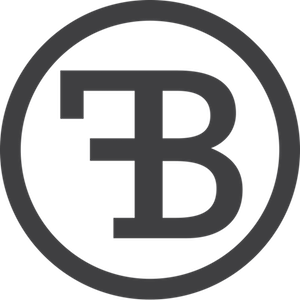Republished from Fairpress with the permission of original author: Munir Podumljak, Fairpress
On November 27, 2019, in Zagreb, Croatia, the Embassy of France in Croatia, the Electronic Media Agency (AEM), Friedrich Ebert Stiftung and the Croatian Journalists’ Association (HND) held a conference on „Countering disinformation in the era of digital media“.
Video: Fairpress/NewsBeez/Matea – ZG/27 Nov 2019/12:31
Dynamic and revealing discussions between experts from Croatia, France, Germany, Finland, Slovakia, Slovenia, Bosnia and Herzegovina and Serbia, pointed at direct relationship between information disorder and deviant democratic processes as seen in 2016 BREXIT vote and result of recent US presidential elections. Experts, during the conference, also tried to argue over what approach in tackling information disorder is more effective: More strict regulation, journalist-led fact-checking or media literacy initiatives that aim to improve readers understanding of the issue. _Information disorder is part of the latest global information warfare that affects each and every citizen of the planet_, experts agree. However, conference arguments on effective and efficient responses to the problem where contradictory, depending on the fields of expertize, professional engagement or level of interpersonal trust in societies experts come from.
Photo: Fairpress/NewsBeez/Matea – ZG/27 Nov 2019/12:33

Mikko Salo: Media is in the frontline to safe democracies
Mikko Salo, founder of Finnish independent non-profit fact-checking service Faktabaari, pointed that such difference in opinion from different actors may not be bad after all, as it represents pluralism of opinion so needed in quality discussions.
“Internet is broken, liberal democracies are under pressure… and we need a holistic multi-dimensional response to a problem – Salo pointed in his opening statement.”
As for solution, Mikko Salo emphasized that “Media sector is in the frontline to safe democracies…” and that priority of future media innovation is to ensure reach, plurality and independence of trustworthy voices.__
Photo: Fairpress/NewsBeez/Matea – ZG/27 Nov 2019/12:34

Finnish expert, aside from being one of the strong voices of the conference, is one of the trusted personas of the fact-checking scene.
He is a former member of the European Commission’s High-Level Group on Fake News and Online disinformation and EU Senior Advisor to LUT University. He participated in development of Faktabaari EDU fact-checking voter literacy and internet literacy toolkits to empower teachers and future voters’ critical thinking. On January 26, 2019 Mikko Salo and Faktabaari were awarded the prestigious Chydenius Medal to mark the outstanding performance on international level in promotion of the principles of openness (more). More recently, on October 17, 2019 Faktabaari, was nominated for an award for its fact-checking of claims made by teen climate activist Greta Thunberg. In the interview to Science News for Students, Salo explained that Faktabaari “found three of four key issues delivered in Greta’s speech, have scientific consensus, while the fourth claim, was in yellow zone – Thunberg had said the European Union needed to cut carbon-dioxide emissions by at least 80 percent by 2030. Comments from two scientists showed that such claim was a matter of interpretation” (more).
Even though there is no dispute over the importance of fact-checking, the approach still has many challenges to overcome. Exclusively for Fairpress.eu Mikko Salo commented on remaining issues:
“The biggest challenges of the fact checking industry is to remain financially independent, and to get funding from many different stakeholders so that you could not be labelled as working for someone, because independence and transparency is everything for the fact-checking. If that is solved you can actually help journalism and media literacy.”
Video: Fairpress/NewsBeez/Matea – ZG/27 Nov 2019/12:43
Need for more resources and economically efficient models
The conference Countering disinformation in the era of digital media“ did not provide an ultimate solution to the problem. However, it did provide insight into two things – disinformation tactics used to harm democracies and 2019 state of play in war against information disorder. The problem appears to be known and well researched, but the solutions remain weak and ineffective on global scale. Political ambivalence toward the issue and limited available resources resulted in an unfair game. Therefore, the main take from the conference is that innovative comprehensive approaches, including economically efficient models, are needed if we are to save concept of democracy for future generations.

